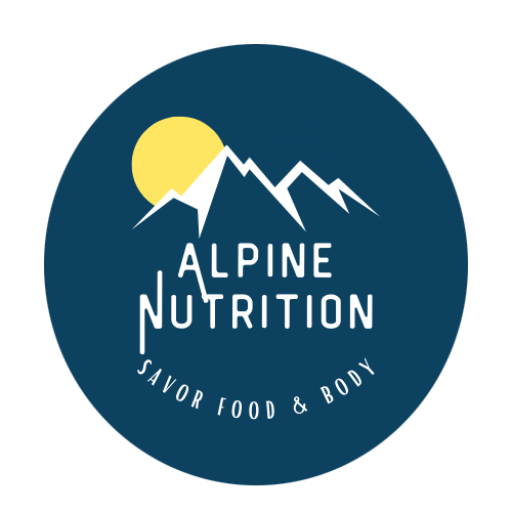Feeling a little or a lot out of control after the weekend free-for-all Halloween sugar-fest? Does bingeing on Halloween candy make you feel like a sugar addict?

If Halloween seems to kick off your sweet tooth to the point that it snowballs all the way through to New Year’s, you might consider yourself a sugar addict – feeling out of control any time you’re in reach of sweets.
There’s no denying that the intense force to consume all things sweet is powerful – after all, the primal drive for good-tasting-calories is what’s helped our ancestors survive all these years.
But nowadays, there’s a trendy, diet-culture rumor going around that humans can be just as addicted to sugar as they can be to illicit drugs. HOWEVER, there’s very little solid nutrition and neurological science to back this up.
Before you say, “wait, Dr. Oz (or another celebrity health guru) says…” hear me out.

It’s true that there’s a popular theory running around weight-biased, fatphobic communities (medical and social) call the Food Addiction Theory (FA). It aims to showcase similarities between food (including sugar!) and other addictive substances. Here are the details:
1. Food shares common drug pathways in the brain.
2. Food can activate reward neurons in the brain…” oh, yeah get me more of THAT NOW!”
3. When food is consumed, dopamine receptors in the brain are altered.
4. Anticipation of eating activates regions in the brain in a similar way as when someone is anticipating getting their drug “fix.”
Sounds logical, but the scientific literature is weak in proving this FA (sugar addict) theory.
In 2016, a scientific literature review paper was published as a supplement to the European Journal of Nutrition (read complete study HERE). The authors set out to examine the previously published scientific studies in support of FA. They looked at both human studies (there were very few available to review) and animal studies. Here’s what they found…
Current research on FA fails to nail down exactly which elements of foods are addictive. Is there’s only one addictive element (i.e sugar) or are there many? The studies also can’t identify what it is about food that sparks the gotta-have-it-now-drive in some people more than others. BUT there is one conclusion that seems to be clear in all of the studies that were reviewed for this paper…
Restriction creates the feeling of loss of control and urgency around food, and therefore,
bingeing on the sweet food. More specifically, according to researchers:
“We find little evidence to support sugar addiction in humans, and findings from the animal literature suggest that addiction-like behaviors, such as bingeing, occur only in the context of intermittent access to sugar. These behaviors likely arise from intermittent access to sweet tasting or highly palatable foods, not the neurochemical effects of sugar.”
BAM! Science has spoken…and given you permission to eat Halloween candy, holiday treats, ice cream, and chocolate whenever! You are NOT a sugar addict!
Bottom line, ANY TIME you restrict food, especially highly pleasurable food, you WILL feel out of control with it when you finally give in and let it cross your lips.
As the holiday season draws near, do yourself a favor – practice letting go of the fear around sweet, pleasurable food. Give yourself a TON of self-compassion as you work through challenging the food police comments (you shouldn’t eat that because X diet-related reason) in your head as you bite into a favorite food.
Remind yourself…there’s no such thing as a sugar addict. you can have this sweet taste ANY. Time. You. Want!
Food does not need to be all or nothing, black or white. Besides, all the tastes of the upcoming holiday season are worth savoring!
Learn how to start reclaiming your health from the toxic body shame and blame created by diet culture, by downloading the FREE Savor Food & Body Guide. You’ll get 5 action-packed steps to start healing your relationship with food and your body. You’ll also receive the weekly Alpine Nutrition Insider Newsletter with additional tips, resources, and recipes to support your Intuitive Eating practice.




